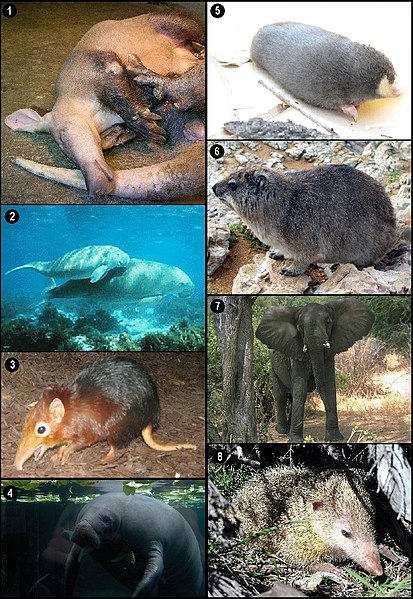Proboscidea is a taxonomic order of afrotherian mammals containing one living family (Elephantidae) and several extinct families. First described by J. Illiger in 1811, it encompasses the elephants and their close relatives. Three species of elephant are currently recognised: the African bush elephant, the African forest elephant, and the Asian elephant.
Image: Elephant Diversity
Image: Moeritherium sp
Skeleton of Palaeoloxodon falconeri, one of the smallest known dwarf elephants, with an adult shoulder height less than 1 metre (3.3 ft)
Afrotheria is a superorder of mammals, the living members of which belong to groups that are either currently living in Africa or of African origin: golden moles, elephant shrews, otter shrews, tenrecs, aardvarks, hyraxes, elephants, sea cows, and several extinct clades. Most groups of afrotheres share little or no superficial resemblance, and their similarities have only become known in recent times because of genetics and molecular studies. Many afrothere groups are found mostly or exclusively in Africa, reflecting the fact that Africa was an island continent from the Cretaceous until the early Miocene around 20 million years ago, when Afro-Arabia collided with Eurasia.
Afrotheria




